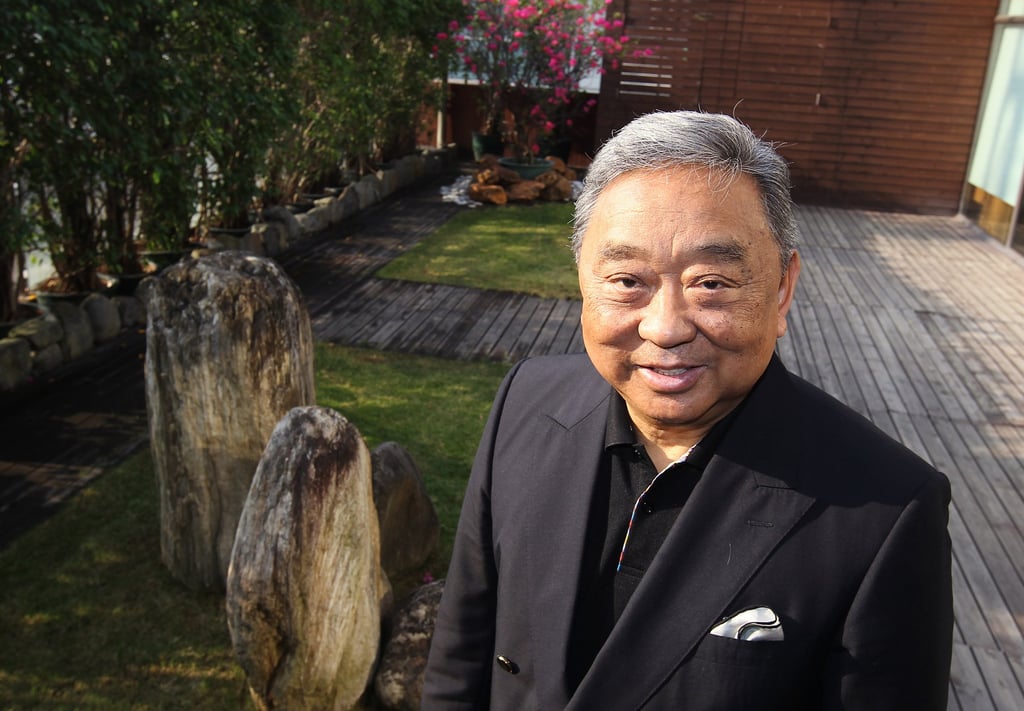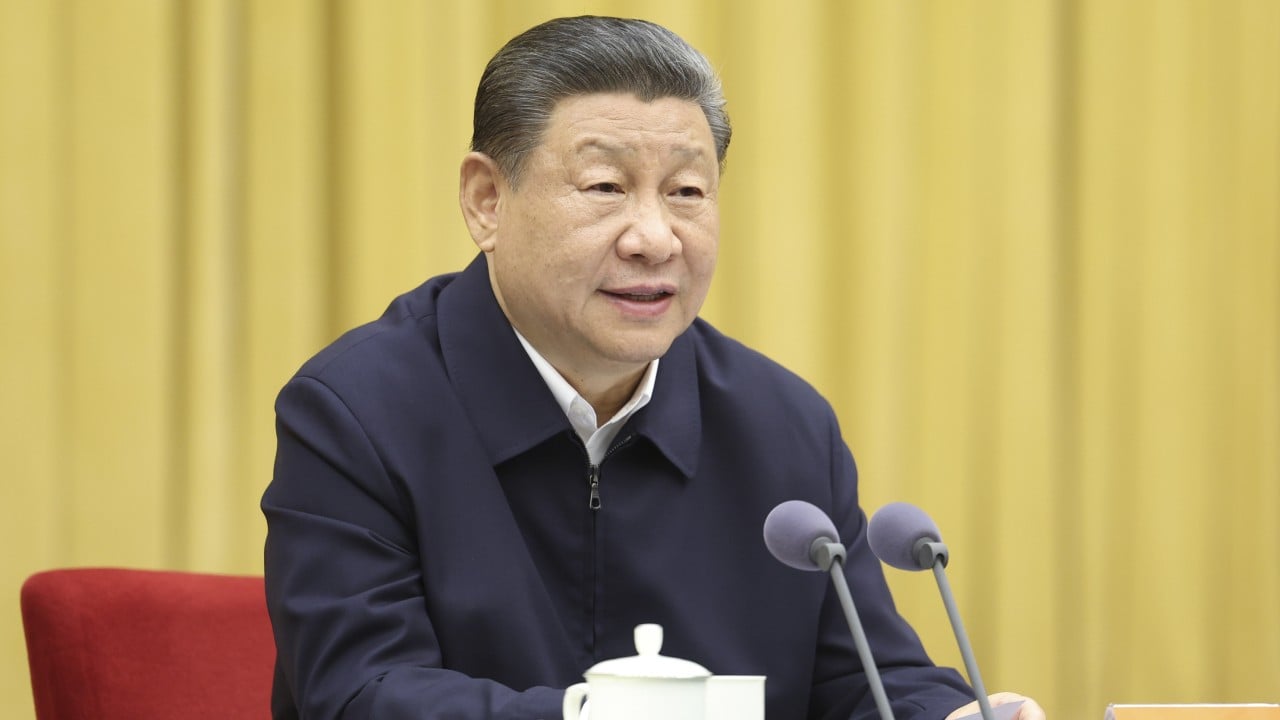President Xi Jinping has taken a rare step to engage the business community as he urged Hong Kong entrepreneurs with familial ties in a mainland port city to make greater contributions to the nation’s modernisation, a move experts see as a way to show confidence in the faltering private sector.
Xi’s remarks on Tuesday were in a letter written in response to Hong Kong business leaders who are descendants of pioneering Ningbo-born entrepreneurs of the city.
They include Anna Pao Pui-hing, eldest daughter of the late shipping magnate Sir Pao Yue-kong, and Ronald Chao Kee-young, eldest son of the late industrialist Chao Kuang-piu.
Xi expressed gratitude to the businesspeople for their continued support of their hometown and country, including establishing businesses and schools, while asking them to leverage their respective strengths and actively take part in the country’s reform and opening up.
The president’s reply coincides with the 40th anniversary of late Chinese leader Deng Xiaoping’s 1984 call to mobilise the global “Ningbo bang” – usually formed by merchants – to develop Ningbo. In Chinese, “bang” means a cluster of people who are bonded together by the same goals and ideals.
Ningbo, a city in Zhejiang province, where Xi served as party secretary from 2002 to 2007, is known as an important port and an industrial hub in China.
The Ningbo merchants have earned their name as “Ningbo bang” after helping establish China’s first modern bank, stock exchange, insurance company, post office, fashion school and various speciality factories spanning cosmetics and food additives to matches and soap.
The “Ningbo bang” in Hong Kong, which includes shipping magnate Pao and late entertainment magnate Run Run Shaw, has long been hailed as pioneers in advancing China’s reform and opening up in the 1980s.
The late Pao and Chao Kuang-piu, father of Ronald Chao, had also been received by Deng over various investment and economic activities on the mainland.
In his letter, Xi noted that for many years, the Hong Kong entrepreneurs with Ningbo ancestry had a “homeland affinity” and patriotic spirit passed on from “generation to generation”.
He also acknowledged the group’s active engagement in innovation, entrepreneurship as well as philanthropy and education.
Xi said that the building of a strong country and rejuvenating it through modernisation required all Chinese to unite and work together.
“[I] hope you will continue to leverage your respective strengths, proactively integrate into China’s reform and opening up, make new contributions to Chinese modernisation, and contribute to the realisation of the Chinese dream of great national rejuvenation,” he wrote.
In response, Ronald Chao thanked Xi for his encouragement to the next generation with Ningbo ancestry, adding his father only made the contribution that every Chinese should have made in his life.
Chao said Hong Kong was presented with both opportunities and challenges as it entered a new stage.
“We will continue to inherit the spirit of loving the country and Hong Kong from the past generation, work hard in our own fields, serve and contribute to the needs of Hong Kong and the country, and better integrate into the overall development of the country,” he said in a statement.
Xi’s open letter was issued at a critical time when more Hong Kong entrepreneurs were losing confidence in the city’s economic prospects, said Simon Zhao, the associate dean of the Faculty of Humanities and Social Sciences at Beijing Normal University & Hong Kong Baptist University United International College.
Zhao added that Hong Kong’s momentum in attracting foreign investment, both on its own and as a bridge to help the mainland attract foreign investment, was also weakening.
“Xi’s letter sends a signal of reassurance and encouragement that the central government cares about them and needs them to be confident enough to stay in Hong Kong for development and sustained investment,” he said.
Peng Peng, executive chairman of the Guangdong Society of Reform think tank, said Xi had shown his commitment to prioritising economic development in the second half of the year.
Peng also cited how the report by state-owned news agency Xinhua about the letter had mentioned Deng Xiaoping, a subtle yet significant sign of Xi’s determination to continue the reforms Deng had embarked on.
Later this month, on August 22, is also the 120th birthday of the late paramount leader.

China’s economy has slowed down in recent years from double-digit growth in 2010 to around 5 per cent currently. Over 95 per cent of Chinese business entities are from the private sector, making it the major growth driver.
Hong Kong Chief Executive John Lee Ka-chiu said Xi’s letter showed the leader’s “affirmation and sincere encouragement” for Ningbo-linked merchants in the city to redouble their patriotic acts and contributions to the country’s development.
“The inspiring letter has instilled a steadfast confidence in not only the mentioned businessmen, but also Hong Kong entrepreneurs in different places of the country, to continue leveraging their strength to contribute to the country,” Lee said in a statement issued on Thursday night.
The Hong Kong leader also pledged to unite all business and civil forces to integrate into the nation’s development, contributing to a stronger country and its rejuvenation.
William Lee Tak-lun, president of the International Ningbo Merchant Association and one of the entrepreneurs penning the letter, told the Post that they sent it to Xi about two weeks ago.
According to him, their letter was a report of what they did in the past twenty years in terms of boosting Hong Kong’s economy and people’s livelihood, as well as their commitment to serve the city and the country.
“We are surprised that he replied to us so soon, which is a big encouragement to us,” Lee said, adding most of the entrepreneurs are the second and third generation of Ningbo businessmen.
“The president has asked us to do more. We will as always,” Lee said.
Since the mainland’s reform and opening up in the 1980s, the Ningbo group in Hong Kong donated over 6 billion yuan (US$830 million) to support the mainland’s scientific, educational, cultural, health and public welfare undertakings.
They have also contributed to the economy and society by attracting investments and driving the opening up of the country.
The last time Xi wrote to individual business leaders was a decade ago when he replied to 30 Fujian entrepreneurs to mark the 30th anniversary of the province’s leaders’ appeal to decentralise enterprises. Xi used a Hokkien metaphor “hard work equals victory” in the letter to encourage them.
In his previous letters to Hong Kong, Xi had engaged with students from Pui Kui Middle School in July 2023, calling on them to build a stronger nation.
He also responded to 24 of Hong Kong’s leading scientists and university professors who wrote to him in 2017 to “express their pressing hope to make a contribution to the motherland”.
Additional reporting by Huifeng He and Mia Nulimaimaiti


